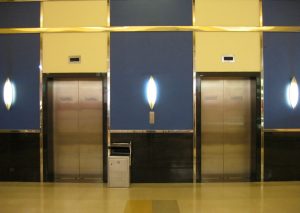Key West Injury Lawyer Explains Negligence Per Se

In most Florida injury lawsuits, the injured person (plaintiff) needs to show the person or entity they are suing (defendant) violated a duty of care that was owed, resulting in the injuries and financial damages at issue. In some cases, however, the plaintiff can establish the duty of care and the breach of duty using the doctrine of negligence per se. The phrase “per se” in Latin means “in itself” or “by itself.” As a Key West injury lawyer can explain, negligence per se is a legal term that refers to a violation of some statute, law, or regulation enacted to protect individuals in the plaintiff’s same position. Where the doctrine applies, one need only prove the defendant’s actions were the proximate (legal) cause of their injuries.
A recent ruling by Florida’s Second District Court of Appeal dealt with negligence per se in an elevator accident. In the case of Vogel v. Cornerstone Doctors Condominium Association, Inc., the question was whether the defendant property owner acted reasonably with regard to the safety of its elevator. In that case, the Defendant owned a two-story building that houses medical offices. Plaintiff was a patient who went to his doctor to give them his new insurance card. On his way in, he rode the elevator to the second level without issue. Upon departure, he approached the elevator again and found the doors were open. He stepped inside but soon discovered the elevator floor was not properly level, as it was about two feet below the landing. Unfortunately, he did not realize this until after he had taken a step in, and as a result, fell, suffering personal injuries to his neck and back.
Plaintiff filed an injury lawsuit against the property owner on three counts, one of those alleging negligence per se. Specifically, he asserted a breach of a provision of Florida’s Elevator Safety Act. The act charges elevator owners with the safe operation, proper maintenance and inspection of elevators, and the duty to correct any elevator code deficiencies. The act does allow elevator owners to assign these responsibilities to a lessee (which, in this case, would be the doctors’ offices). However, it does not allow this responsibility to be shouldered by a service provider, such as an elevator maintenance company.
The trial court granted summary judgment to the defendant after ruling that certain evidence presented by the plaintiff (that an unknown employee relayed to him the elevator had been fixed) was not admissible. However, evidence had also been presented in the form of a physician’s testimony that no one had attempted to repair the elevator’s dangerous condition. For this reason, the appellate panel ruled that it was up to a jury to weigh whether the defendant of the action took (which reportedly included monthly inspections of the elevator) were adequate in fulfilling their duty under the statute to maintain the elevator in safe working order for invitees.
Suppose your personal injury has resulted, at least in part, because of some violation of laws intended to protect the public. In that case, you may be able to assert negligence per se, which could make winning your case more straightforward. A Key West injury lawyer can carefully examine the facts of your case to determine whether a breach of law contributed in some way to the accident or your injuries.
If you are injured in Key West, Naples, or Fort Myers, and would be interested in a free strategy session with our injury attorneys at Garvin Injury Law please call us at 800.977.7017
Additional Resources:
What is Negligence Per Se? April 25, 2018, Justia
More Blog Entries:
Common Myths About Florida Personal Injury Lawsuits, March 25, 2020, Key West Injury Lawyer Blog





 Florida Personal Injury Lawyer Blog
Florida Personal Injury Lawyer Blog










